Fabrizio Ulivieri's Blog, page 120
September 7, 2018
Ištraukos iš "Amore, šaltibarščiai ir raudonieji pomidorai" — Pabaiga
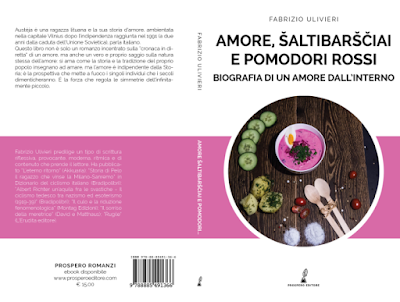
(Iš italų kalbos vertė Margarita Gaubytė)
Aš praeinu savo skausmą ir ilgesį,
Neregio žingsniais skaičiuoju tave.
Tavo tolimą kelią, o, meile, vienintele,
Tyliai praeisiu ir būsiu šalia.
(„Myliu“, Romo Dambrausko daina)
Sėdėjau virtuvėje prie stalo, žiūrėjau lietuvišką televizijos laidą „Auksinis protas“, kurioje atsakinėjo į bendruosius kultūros klausimus, – geras būdas mokytis kalbos. Tai padėjo man suprasti ją ir išmokti naujų žodžių.
Lauke buvo tamsu, snigo kaip svajonių mieste. Austėja ruošė valgį. Padarė šaltibarščius. Atskirai supjaustė raudonų pomidorų. Paprastai šaltibarščiai patiekiami su virtomis bulvėmis, tačiau ji negalėjo be savo gyvybiškai svarbaus maisto. Padarė šaltibarščius su kiaušiniais, jie man, nes vėl žiema. Artėjo Kalėdos, lauke buvo sniego ir spaudė poliarinis šaltis. Manau, kad siekė −35 °C. Buvau sakęs jai, kad žiemą norėčiau paragauti šaltibarščių su kiaušiniais. Man reikėjo energijos – šaltis, sporto klubas, seksas su Austėja beveik kasdien...
Pastebėjau, kad jau keletą dienų Austėja nevalgo saldumynų, negeria kavos ir net vyno. Tačiau niekada neapsieidavo be raudonų pomidorų. Kitą rytą pusryčiams ji padarė sumuštinį su kalakutienos servelatu – rūkyta kalakutiena, kuri forma primena salamino, jį kaitaliodavo su mortadella – uždėjo agurkų ir raudonų pomidorų. Pietūs, ką ji bevalgytų, visada būdavo su raudonais pomidorais. Vakarienei vėl raudoni pomidorai.
Ji prisiartino prie manęs rankose laikydama lėkštes ir padėjo jas ant stalo. Rūpestingai išsirinko raudonų pomidorų gabaliuką ir įsidėjo jį į burną, elegantiškai, tarsi būtų nusiteikusi bendrauti.
Tada ištarė:
- Netrukus atvyks Marco.
- Marco?
Aš pagalvoju apie Marco, savo wing fight trenerį Italijoje, kuris buvo ne tik treneris, bet ir gyvenimo mokytojas. Vienas iš mano labiausiai gerbiamų žmonių Italijoje.
Prisimenu, kartą jam pasakiau:
- Žinai, Marco, galvojau wing fight, istorinis futbolas... vienuolika metų žaidei istorinį florentietišką futbolą, dabar visam gyvenimui esi diskvalifikuotas. Ai, galvojau, vieni raumenys, statinė be smegenų, bet va, atradau Mokytoją. Man kalbi apie kūną, jo simetriją, kinų mediciną, energiją, duodi patarimų, kaip elgtis su žmonėm. Nustebinai, Marco, tikrai mane nustebinai. Iš tavęs išmokau ne tik wing fight – išmokau gyvenimo.
Austėja gerai žinojo, kad labai gerbiu Marco. Aš jį vertinu.
- Pasirinkau šį vardą, nes žinau, kaip tą žmogų gerbi.
- Apie ką kalbi, Austėja?
- Aš nėščia, laukiame mažylio Marco.
Iš lėkštės ji paėmė dar vieną raudoną pomidorą (pomidorai sveika širdžiai, virškinimui, akims, laisvina vidurius, veikia prieš vėžį, mažina cholesterolį, kovoja su osteoporoze... tinkama pradėti naują gyvenimą...), įsidėjo į burną ir dar labiau nusišypsojo man.
Pažvelgiau Austėjai į akis. Nežinojau, ką galvoti. Ar buvau laimingas?
Man žemė pradėjo slysti iš po kojų. Taip, buvau laimingas.
Published on September 07, 2018 07:14
August 15, 2018
About - once again - the contemporary meme-literature

If I consider what is published, the incredible amount of garbage that is published, and the feedback I have received from many readers, who has sincerely confessed that they have not read (or entirely read) any of these books written by one of these great writers, best-selling fiction authors with estimated sales of at least 100,000 copies, my suspicion is that their books are bought just for advice, (often) by those who have heard good things about those books from a third source (newspapers, TV, literary prizes, are metrics used for piloting sales). Actually, no one (or few) has definitely read them, for the reason that the vast majority of these 100,000 copies-super authors are deadly boring and reiterating a lack of contents.
Published on August 15, 2018 12:03
August 2, 2018
Similarities between Lithuanian, Sanskrit and Ancient Greek: the sigmatic future
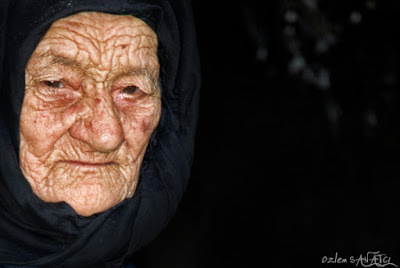
by Fabrizio Ulivieri
Lithuanian is the most archaic among all the Indo-European languages spoken today, and as a result it is very useful, indeed, indispensable in the study of Indo-European linguistics.
The most important fact is that Lithuanian is not only very archaic, but still very much alive, i. e., it is spoken by about three and a half million people. It has a rich tradition in folklore, in literature, and it is used very successfully in all walks of modern life, including the most advanced scientific research.
Forced by our interest for this piece of living archaism, we go deeper in our linguistic survey.
One of the most noticeable similarities is the future (- sigmatic future -).
Lithuanian has preserved a future tense from prehistoric times: it has one single form, e.g.
kalbė-siu 'I will speak', etc.
kalbė-si
kalbė-s
kalbė-sime
kalbė-site
kalbė-s
This form kalbėsiu is made from the stem kalbė-(ti) 'to speak', plus the ancient stem-ending (or formant, suffix) •sjō [> Old Lituanian sjūo > sjū, Mod. Lith. -siu; Sanskr. (i)ṣyá; Anc. Greek -σ- = s). This is called the sigmatic future. It has been recorded only in ancient Old Indic (Sanskrit) and Ancient Greek, but it is still used by every speaker of Lithuanian today.
To better understand let's put in comparison the future of būti "to be" in Lithuanian and Sanskrit.
Lithuanian
būsiu "I will be"
būsi "you will be"
bus "he/she/it will be"
būsime "we will be"
būsite "you will be"
bus "they will be"
Sanskrit
bhaviṣyāmi "I will be"
bhaviṣyasi "you will be"
bhaviṣyati "he/she/it will be"
[...]*
bhaviṣyāmaḥ "we will be"
bhaviṣyatha "you will be"
bhaviṣyanti "they will be"
There is no need to be a specialist in comparative linguistics to also note the perfect formal resemblance between the Lithuanian and the Sanskrit future.
Also those who have the least knowledge of Ancient Greek can easily realize how close these forms are.
λύσω "I will solve"
λύσεις "you will solve"
λύσει "he/she/it will solve"
[...]
λύσομεν "we will solve"
λύσετε "you will solve"
λύσουσι "they will solve"
-------------------------------------------------*We left out the dual form:
bhaviṣyāvaḥ "we two will be"
bhaviṣyathaḥ "you two will be"
bhaviṣyataḥ "they two will be"
Dual has however preserved traces especially in the verbal conjugational systems. In Lithuanian, primarily in living dialects, dual forms are still used. We shall cite here a present tense of the verb eiti "to go":
mudu (mudvi) einava "we two go"
judu (judvi) einata "you two go"
jiedu (jiedvi) eina "they two go"
Published on August 02, 2018 06:12
Two languages surprisingly close because of their the lexicon and structure: Lithuanian and Sanskrit
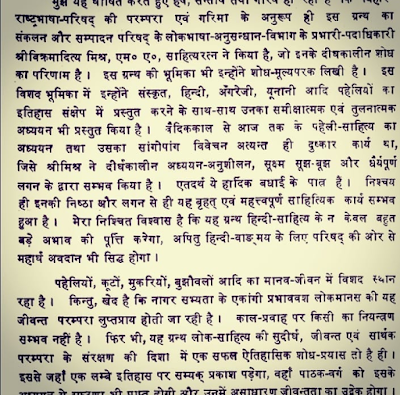
Among the European languages, apparently the Lithuanian is the closest to Sanskrit language.
Here are some surprising similarities:
Horse Arklys (lit.) - ashva (snkr.)
Smoke Dūmas (lit.) - dhumas (snkr.)
Son Sūnus (lit.) - sunus (snkr.)
Man Vyras (lit.) - viras (snkr.)
Sole Padas (lit.) - padas (snkr.)
Fire Ugnis (lit.) - agnis (snkr.)
Wolf Vilkas (lit.) - vrikas (snkr)
Wheel Ratas (lit) - rathas (snkr.)
Old man Senis (lit.) - sanas (snkr.)
Tooth Dantis (lit.) - dantas (snkr.)
Night Naktis (lit)- naktis (snkr.)
Dog Šuo (lit.) - švan (snkr.)
The relationship between Sanskrit and Lithuanian goes even deeper. Take, for example, the Lithuanian word "daina" which is usually translated as "song". The word actually derives from an Indo-European root, which means "to think, to remember, to meditate". This root is found in Sanskrit as dhi and dhya. The word also occurs in the Rigveda (ancient Indian sacred collection of hymns in Vedic Sanskrit) in the sense of "discourse that reflects the inner thoughts of man".
Published on August 02, 2018 03:15
July 15, 2018
La nota piattaforma culturale "Libreriamo" pubblica un racconto di Fabrizio Ulivieri

In ogni relazione come in ogni lavoro, disciplina, arte, tecnica… vi è un incognita che gioca un ruolo fondamentale: il fattore umano. E nessuno ne è immune. Anche nell’essere felici, una volta raggiunto uno standard di felicità il fattore umano può essere decisivo per gli equilibri.
La tristezza di Diego, la sua pigrizia abitudinaria da una parte e la radicalità di Rūta e il suo modo di vivere fondamentalmente com-pulsivo dall’altra costituivano due fattori umani che venivano a confronto.
Per quanto si dessero regole sul come cercare la felicità e mantenersi felici tuttavia, i loro istinti, pulsioni, desideri, disposizioni naturali qualora fossero forzati da agenti esterni interferivano sul comune stato di felicità.
Il venerdí per esempio nasceva spesso un’interferenza per cui il loro livello di felicità tendeva a collassare....(read more)
Published on July 15, 2018 08:40
July 12, 2018
"RUGILĖ" Fabrizio Ulivieri - geras pavyzdys to, kaip netikėtai pasikeičia kūrybiškumo kryptis
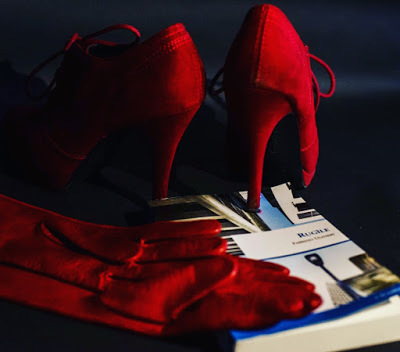 Foto by Živile Abrutytė
Foto by Živile AbrutytėParašęs „Rugilė“, maniau, kad tai knyga apie žmogaus būklę ir egzistenciją. Egzistencialistinė knyga.
Tačiau šis romanas buvo neteisingai suprastas. Knyga buvo perskaityta labiau kaip knyga apie seksą, gryną seksą, kaip lygiagreti projekcija „Penkiasdešimt pilkų atspalvių“ (tarsi mestas iššūkis šiai garsenybei)
Iš pradžių maniau, kad tokia projekcija naudinga kaip raktas parduodant. Ir tai tikrai padėjo parduoti knygą, bet taip pat paskatino neteisingai suprasti „Rugìle“.
Seksas yra kūrybiškumas. Instinktas. Kažkas, kas yra už supratimo .
Seksas nėra sąmonė. Seksas nėra racionalumas. Seksas yra instinktas ir neracionalumas, kaip kūrybiškumas. Abu, seksas ir kūrybiškumas, nėra sąmoningas intelektualus gyvenimas, bet kažkaip koduojama, šifruojama informacija, kurios mūsų protas (sąmonė) negali kontroliuoti. Abu išvengia mūsų sąmonės.
Romane „Rugìle“ bandžiau išanalizuoti priežastis, kurios lieka už šio instinkto. Bandžiau suprasti šio instinkto pagrindą.
Manau, kad „Rugìle“ yra geras pavyzdys to, kaip netikėtai pasikeičia kūrybiškumo kryptis.
Published on July 12, 2018 02:02
July 9, 2018
Why freedom is prejudicial to creativity?
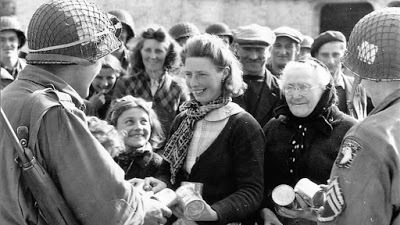
I always thought that too much freedom, democratic freedom understood like a form exasperated individualism (Italian style), is detrimental to creativity. Creativity, the real one, that is linked to the power of internal messages and based on the support of strong values (ideologies, heroism, honour, courage ...).
The literary creativeness we are witnessing today is a mere reproduction without any minimal content. Framed Memes. I can not find a better definition.
In the words of Curzio Malaparte, La pelle, I find confirmation of how too much freedom can be prejudicial to the individual (and his creativity). Too much freedom is similar to a plague, as Malaparte describes it, in terms of liberation of Naples by the American forces.
"If an Allied soldier leaned out of his jeep and smiled at a woman and then stroked her face in a fleeting and slight way she, preserved dignified and pure up to that moment, would become a prostitute. If a child put a candy to his mouth offered by an American soldier, that innocent soul would be suddenly corrupted [...] Freedom is something a folk can pay dearly. Freedom costs more than slavery. And you pay freedom not with gold, nor with blood nor with the noblest sacrifices, but with cowardice, prostitution, perfidy and all the rottenness of the human mind."
Published on July 09, 2018 07:44
July 8, 2018
"RUGÌLE" by Fabrizio Ulivieri, an unexpected swerve which was not programmed
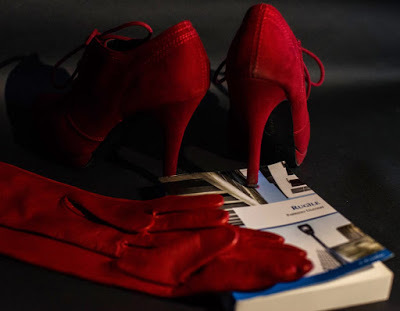 Foto by Živile Abrutytė
Foto by Živile AbrutytėWhen I wrote "Rugíle" I thought I had written a book about the human condition and existence. An Existentialist book.
But the novel has been misunderstood. It was read more like a book about sex, pure sex, a parallel projection of "Fifty shades of grey" (ready to challenge the famous Fifty Shades of Grey)
When this projection started I found it useful in sales key terms. And it helped indeed to sell the book but that has led to misunderstand the real message of "Rugíle".
Sex is creativity. Instinct. Something that is beyond any understanding.
Sex is not consciousness. Sex is not rationality. It is instinct and irrationality, as creativity. Both sex and creativity are not conscious intellectual life but somehow encoded, encrypted bit of information that our mind (consciousness) can not control. Both elude our consciousness.
In "Rugíle" I tried to analyse the reasons that stay behind this instinct. I tried to understand the ground of this instinct.
I think that "Rugìle" is a good example of a message that can take a different direction, suffers an unexpected swerve which was not programmed.
Published on July 08, 2018 01:07
July 4, 2018
8 September the day Italy died (2)
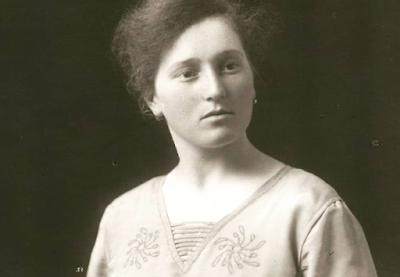
Of those days spent in the farmhouse before leaving to Verona and trying to take the train to Florence Silvano remembered one morning. The sun was already high, and it was hot even though it was September. The sky appeared full of bristly and white cirrus like goat's milk.
Twenty girls on bikes had gathered in the Cascina. They wore light dresses that assumed dark shadows under the sun filtered by the cirrus clouds.
In the distance, in front of them, stood the a far countryside and a linear white road that stood out as if it was carved against the plain.
Silvano stood under the stable's shed and looked at them like one usually would observe a painting.
That image of fresh youth, of flesh exposed to the sun, provoked him.
Even now the memory of that day made him feel such a strong emotion that even at the age of ninety it could become excruciating. It was the same emotion but a deaf pleasure of his flesh, now.
The prostate had been tormenting him for years and only got worse.
To avoid the misery of the present torments, he returned to thinking of the neorealist picture that lingered in his mind, of those girls who solely wore the beauty of youth and had gathered in the farmyard to go to work to the many orchards adjacent to the Cascina.
He remembered Bruna. He came out of one of his brain circuits. Brunette ... how could he forget her!
That morning there was also Bruna in the group. He wanted to call her but he held back. He was not sure she would like it.
The previous evening, in the straw mattress of the stable where he slept, Bruna had offered herself to Silvano.
His comrades, who lived near Treviso, had left early in the morning. They had received clothes and shoes from the peasants. Through an acquaintance of theirs, a friend of a ferroviere who worked at the Verona train station, they had received information about which trains to take in order to avoid Germans patrols.
They had left in the morning about half past three, it was safer to walk in the dark to Verona, a couple of hours in all.
The peasants had supplied them with fruit and bread, they could eat when they need.
In broad daylight a small group of young men with shaved hair and bags full of food would have received too much attention and for this reason they preferred to leave at that hour. The night is darkest just before the dawn.
Silvano had been advised to wait a little longer. The line to Bologna was the most patrolled, as soon as the control would be loosened they would inform him.
Silvano had been bored all morning and had wandered the whole day around the farm, until after lunch, in the early afternoon, he had not come across Bruna's black eyes.
Two firm breasts like two watermelons, a strong nose, a penetrating and proud look, mounted on a stout and candid smile.
It had been a Madonna apparition.
- Who are you? - Bruna had questioned him directly and without respect.
- My name is Silvano. I defected and fled the barracks two days ago. I'm waiting to leave.
- Are you Tuscan? - he asked him.
- Yup.
- Where are you from?
- Di Montaione
- And where is it?
- Near Florence. Do you know Florence?
- Certo.
Bruna had stared at him intently.
"You're handsome," she shot him in the face and had walked away, pushing the bicycle by hand, without looking back.
At night while he slept in the stable Silvano had awakened with fear. Someone had lifted the blanket and introduced inside.
- Who is there? - he groaned, with il cuore beating hard, the recruiter Silvano.
- Ssssshhhhh! - hissed a hot, sweet-smelling female voice near Silvano's left ear. Felt a warm hand on his left shoulder.
Published on July 04, 2018 07:52
July 3, 2018
8 September the day Italy died
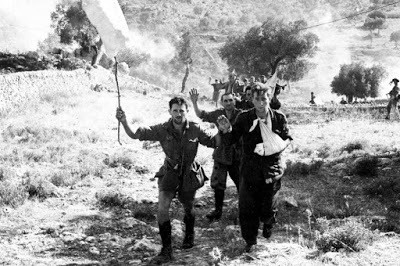
"Odyssey? It is a myth about the nostalgia of returning home, a longing to return home suffered during the long years of "naja" by Italian soldiers taken to fight away from their families, by their worries about how they will return home after the war, by the fear that assaulted them in their dreams and overcome them with the thought of never being able to return, because of strange obstacles that arise on their journey. It is the story of September 8, the Odyssey, the story of many others September 8: the pain and the dread to go home on makeshift vehicles, along countries full of enemies. "
(Italo Calvino)
- Silvano ... Silvano ... - hissed the comrade from above, to warn him of the gunshots.
From below Silvano beckoned him that he had understood.
Gunshots were heard in the distance. On the other side of the barracks, in front of the dormitories there was a colonel with a gun in his hand and two soldiers dead at his feet, to whom he had fired because they had tried to desert.
The German Colonel fired at anyone who attempted to get out.
The Germans had occupied the whole barracks, that night. There was no way out, apparently. But Silvano and two other recruits with a corporal from Treviso had decided to cut the sheets of their cots and to climb down into the courtyard behind the barracks, without a possibility of escaping except for the grate of a manhole, which led directly into the sewers.
They had decided to try that escape route through the manhole. It was the only possibility. If that attempt would succeed they could escape. If it was bound to fail, they would be killed ruthlessly. It went well, instead. The sewerage in the subsoil was large, but full of shit. The smell was unbearable. The clothes were full of shit. They walked in the middle of shit, bent on their legs for a long time. Difficult to say for how long. To Silvano it seemed a long, infinite time, but that underground channel had to come out to some bloody somewhere. They did not know where but they knew were sure that somewhere would come out. Perhaps an hour passed, perhaps less, difficult to calculate in that sea of shit and suffocating heat, but finally they came out in the open country, in the open air and they could breathe. They came out suspiciously, looking around with fear. There was no one. The sun was high. They did not know the time. They walked towards the first farmhouse they met. On the farmyard there were people working outside who came ahead to meet them.
When he arrived at Montorio Veronese, he had seen in the distance the castle that was beautifully carved against the blue sky. He had looked at that sky as he would have looked at any other unexpected appearance.
He felt like a lump in his throat as he entered the barracks, he knew that he would have left those barracks the day he would be sent to the front to fight with the Germanic ally. He could not imagine that in a few days the fate of Italy would be subverted and the German ally would become the enemy and the enemy the ally.
He could not know that in one day a destiny would be drawn that would have weighed on Italy for decades to follow.
Published on July 03, 2018 07:59



